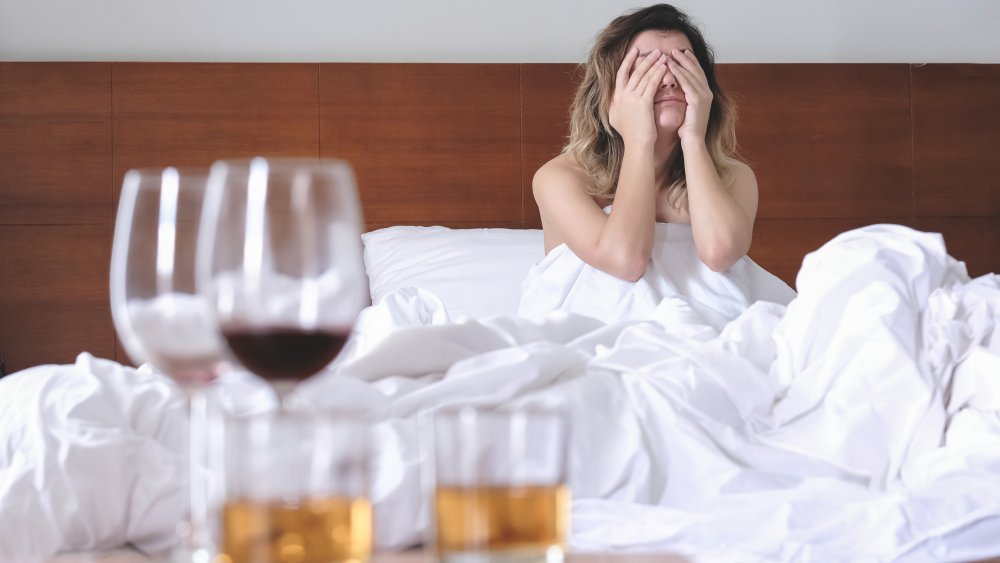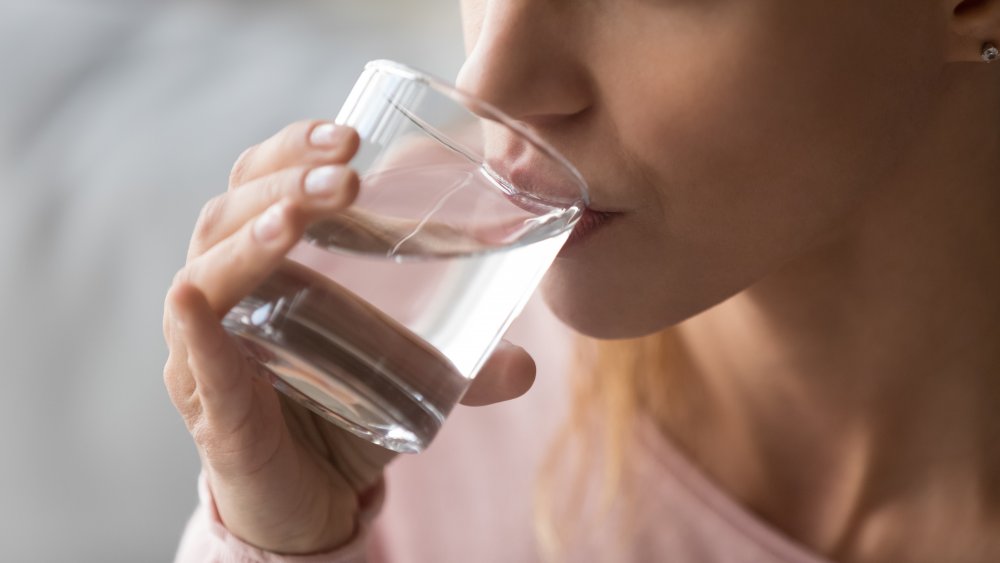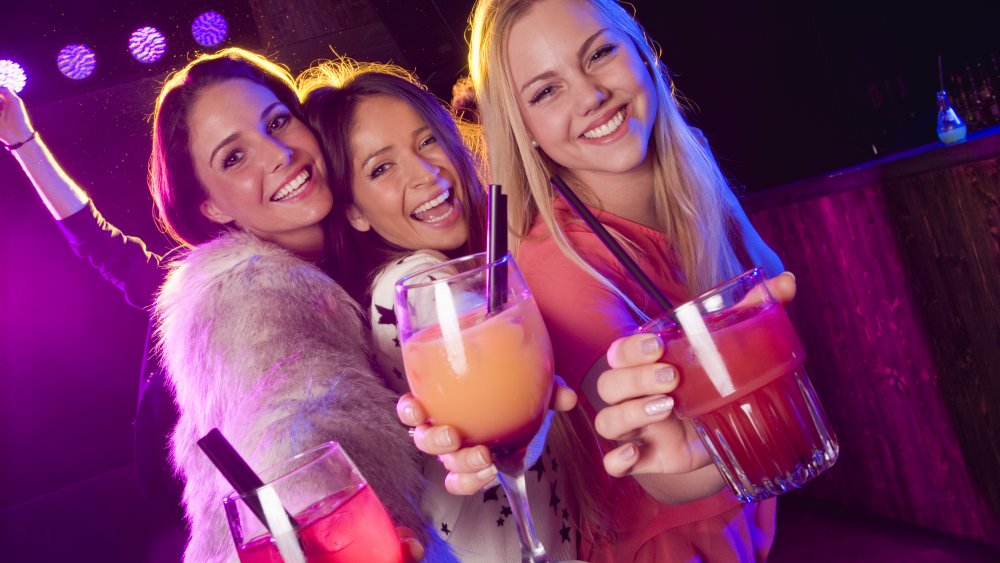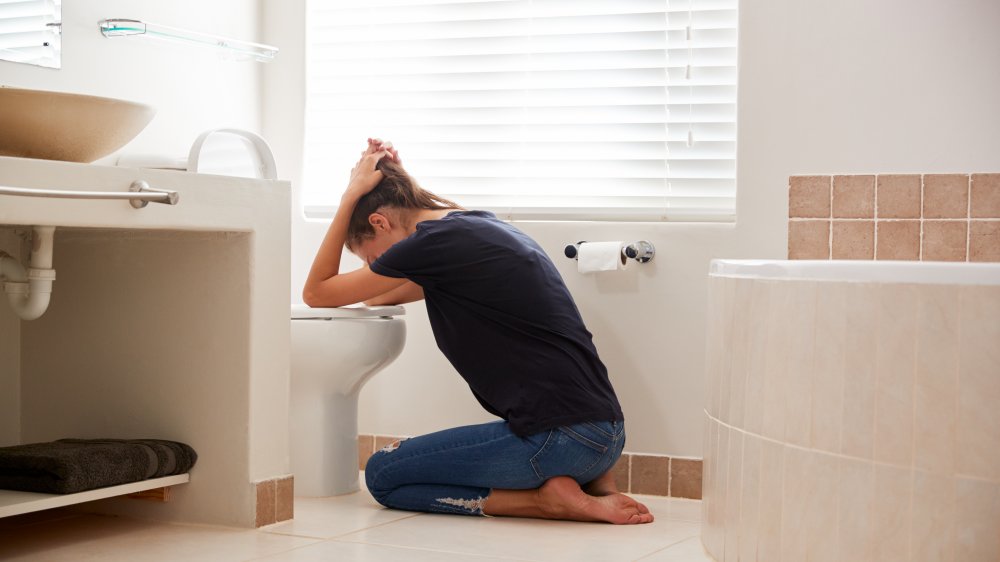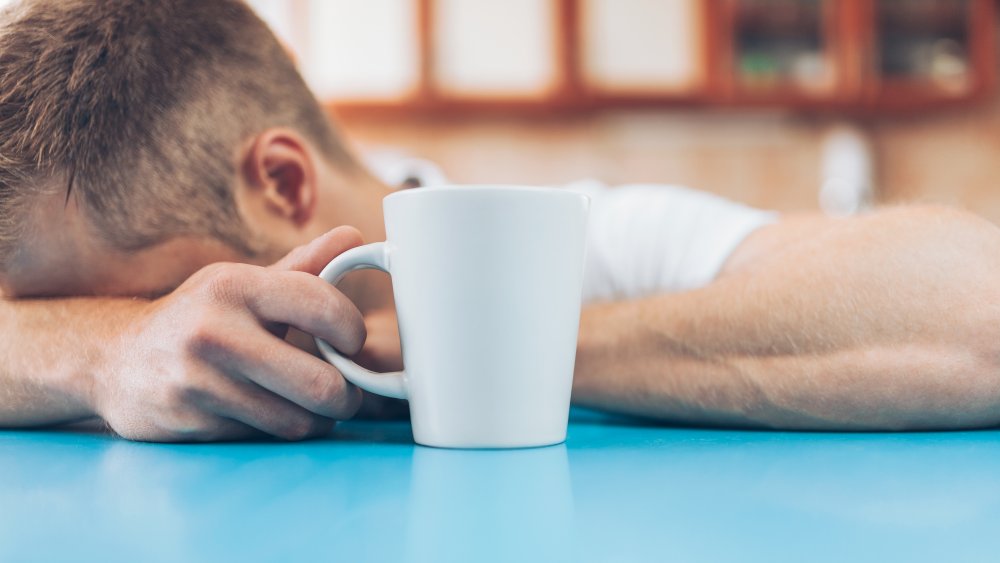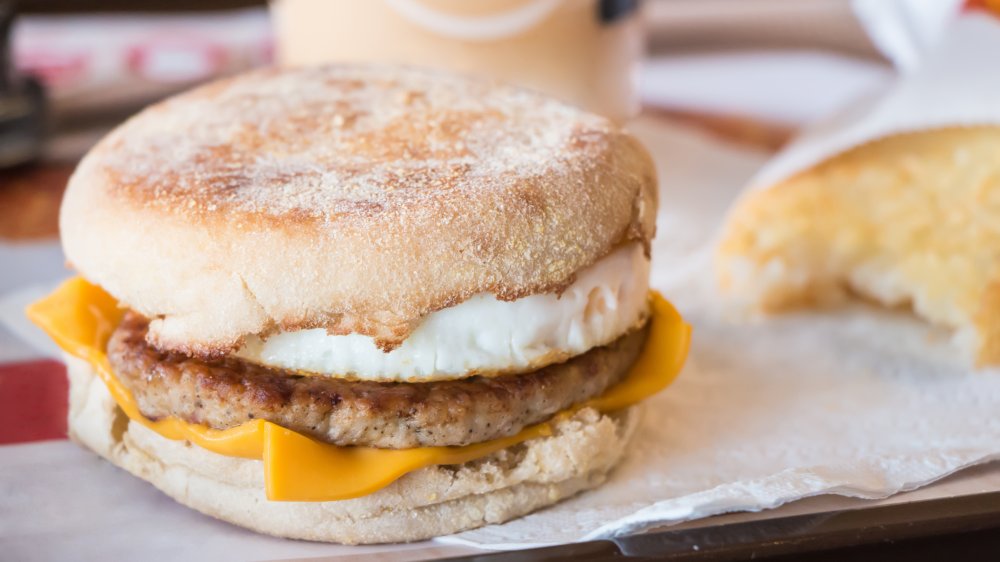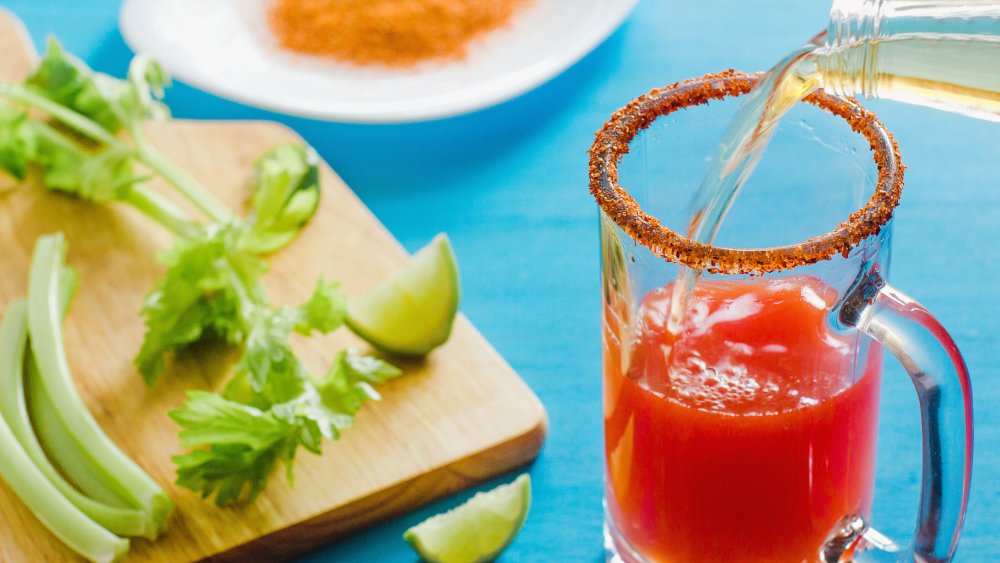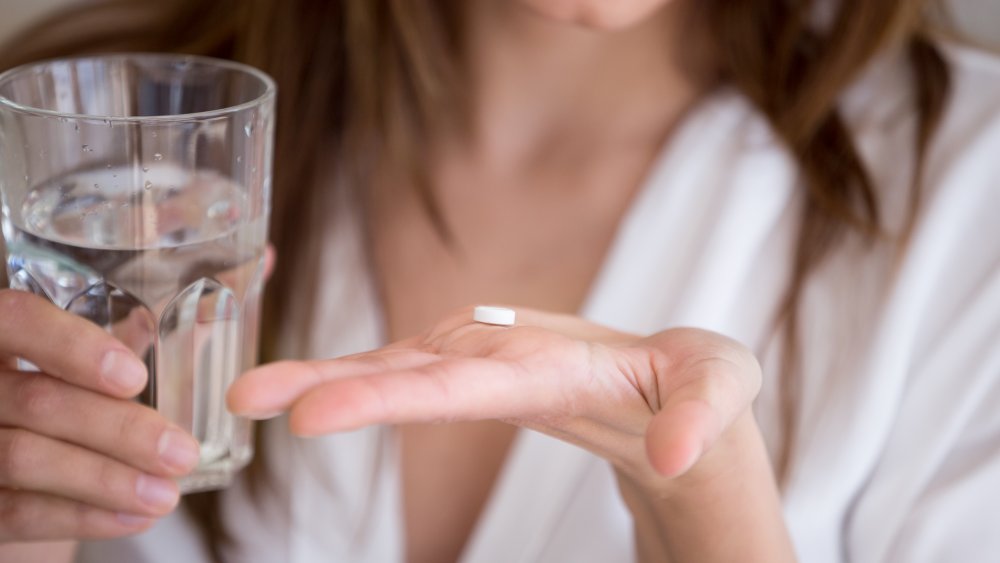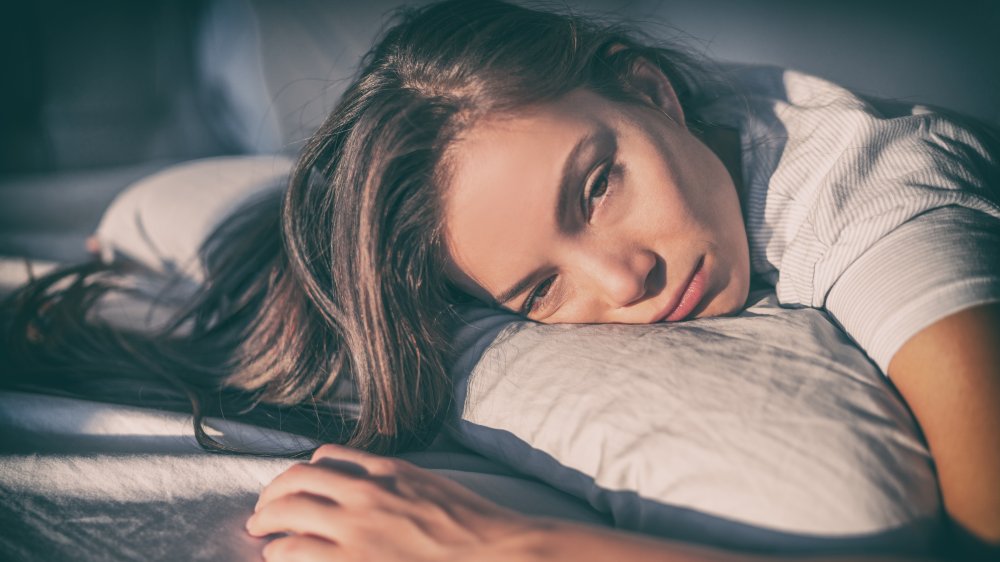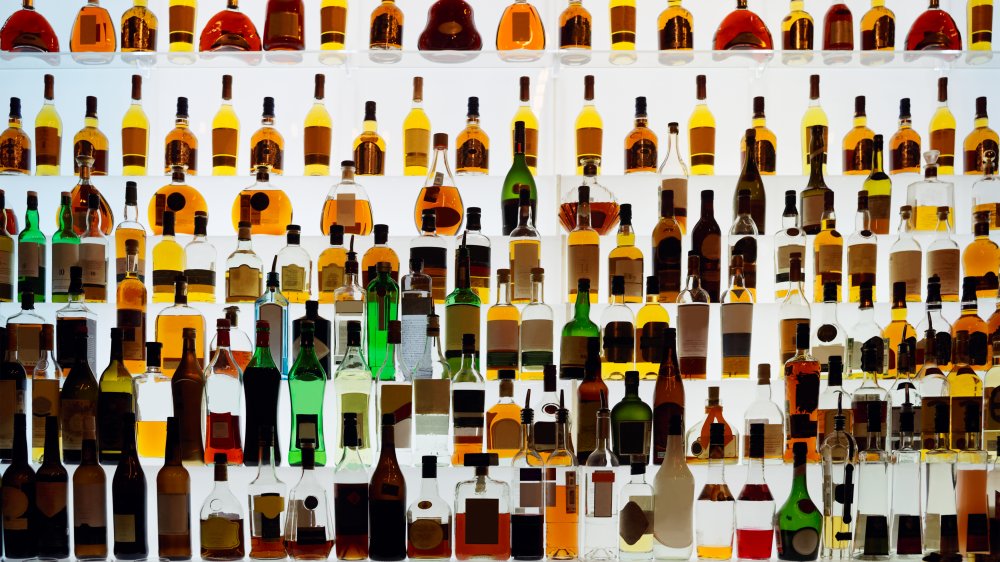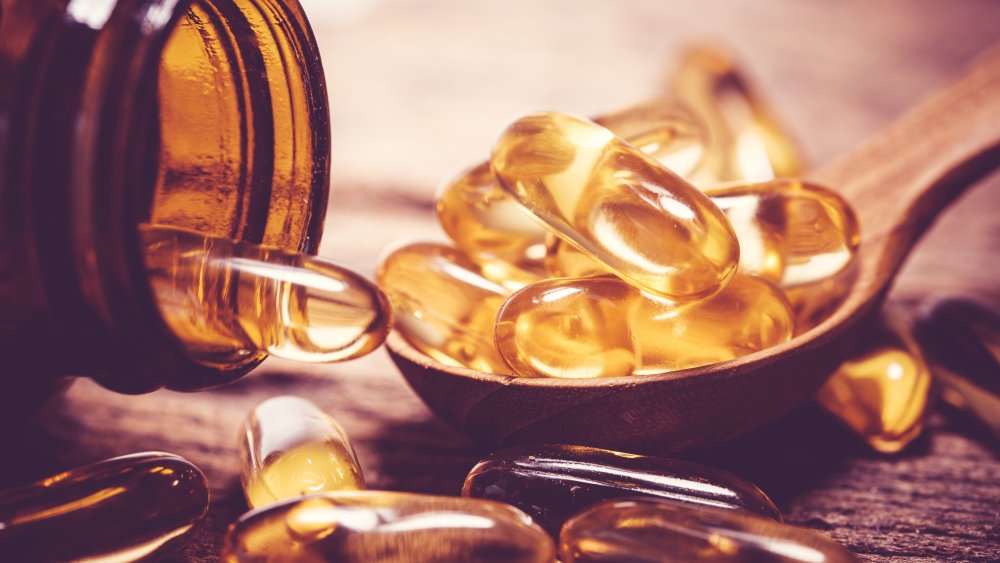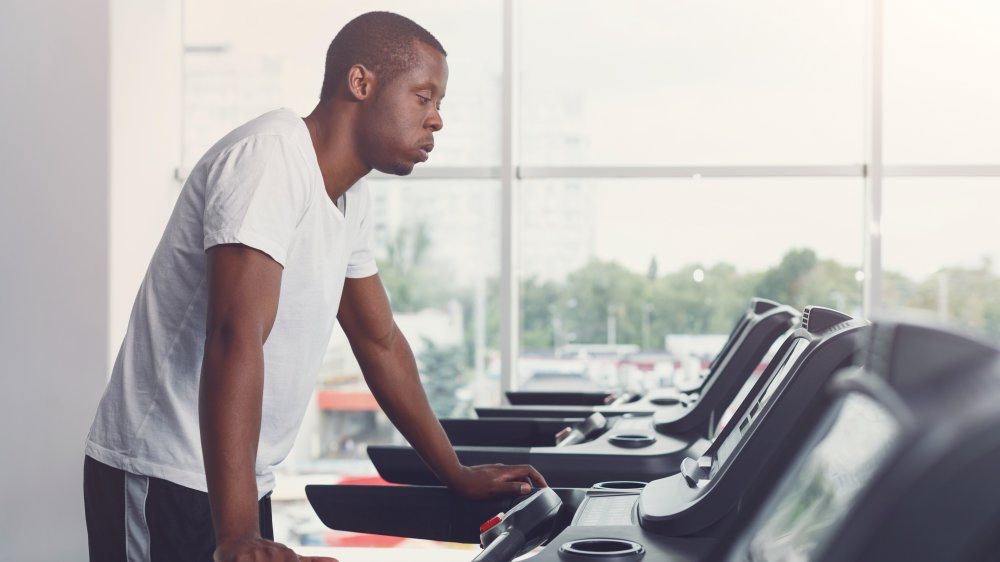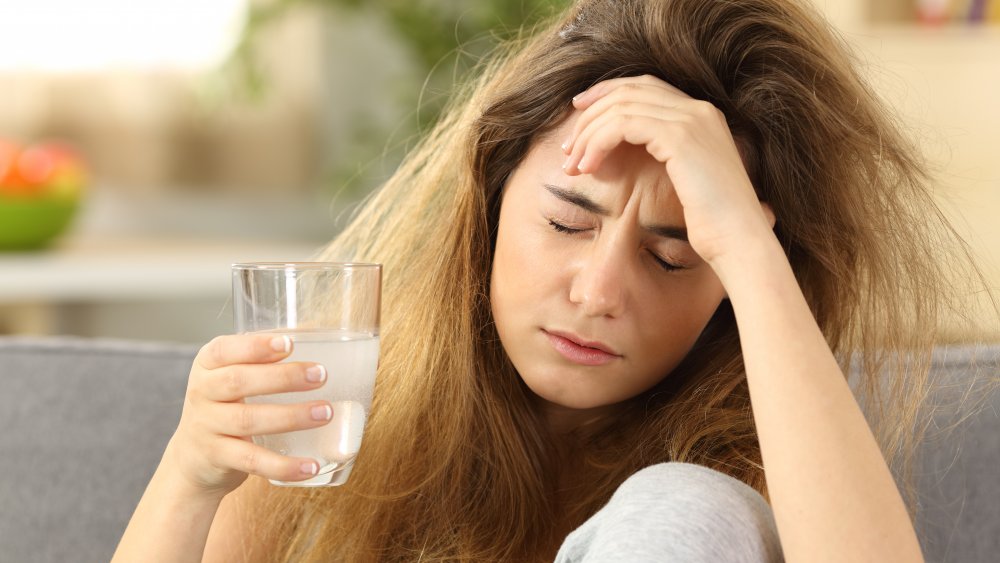Myths About Hangovers You Can Stop Believing
So you have a hangover. Deep breath (if you can muster the energy). We've all been in your shoes and we know how you are feeling (just awful). If we could find a time machine, we'd gladly help you erase the embarrassing things you said and the excessive alcohol you drank. Alas, there is no such invention and, worse yet, no guaranteed cure to wipe away the achey, pulsating, stomach-burning after effects of a wild booze-filled bender.
And while lots of well-meaning friends may offer up their own homemade concoctions and clichéd suggestions to help you fight off the fog and overall torture of a hangover, the fact is: What you really need is time and patience. So save yourself the headache (unless, of course, you already have one), and let us clear things up. Many of the anecdotal post-tequila tips you've heard are based on falsities and misconceptions.
So what advice should you just flat out ignore? Here are the myths about hangovers you can stop believing.
Myth: Drinking tons of water will prevent a hangover
We're not going to tell you not to drink water. Good old fashioned H20 is never a bad thing; hydration has tons of benefits and it certainly can't hurt. But chugging a glass of water in between alcoholic beverages in an attempt to stave off a hangover probably won't do much.
Hangovers remain mysterious to researchers. While they know that many factors contribute to alcohol's unpleasant effects, they aren't able to pinpoint the exact science driving the pain. Most people believe it's pure dehydration, but a German study measured the hydration levels of drinkers and found that they did not lose significant amounts of water (via Business Insider).
Additional research, cited by BBC News, echoed this finding. "We know the immune system is involved, but before we know what causes it, it's very unlikely we'll find an effective cure," said Dr. Joris Verster of Utrecht University. Nevertheless, there is one reason you might want to keep the hydrating habit up: Drinking water means you are — at least momentarily — not drinking booze.
Myth: Wine is the best choice for a hangover-free morning
If you think skipping hard alcohol and sticking with wine will save you a very literal headache, you are painfully mistaken. Professor Steve Allsop of the National Drug Research Institute explained to ABC Life that the congeners ("byproducts of the fermentation process") in wine play a part in giving you a massive hangover. Since darker wines have a higher concentration of congeners, you may actually pay a greater price for indulging in a bottle of fine Cabernet. Still want to toast with vino? Go with a glass of white, but pause before passing the Prosecco.
According to Delish, the bubbles in champagne or sparkling wine have carbon dioxide which alter the effect and flow of alcohol in your body. Sommelier Marco Castelanelli told the site, "Once in the bloodstream the Co2 competes with oxygen which is why you might feel ... rather drunk rather quickly leading to an exaggerated hangover."
Additionally, the aforementioned dark versus light rule applies to all types of alcohol, not just wine, Sloane Davis, a certified nutritionist explained to Food & Wine. Darker beers may give you a worse hangover and clear liquors like vodka could result in a less miserable morning than, say, whiskey.
Myth: Loading up on carbs after a night out will curb the hangover
Who among us has not indulged in a 3 a.m. slice of pizza? It could be actual hunger, social pressure, or even a booze-fueled fury driving us to binge eat well past our bedtime. But many people also believe that stuffing their faces with something carb-heavy will soak up all the alcohol they consumed. Alas, loading up on pasta will not leave you unscathed in the morning — heck, it might give you a bigger bellyache.
Still, you don't have to ditch the bread just yet. As noted by Eating Well, starchy foods, like toast, can ward off nausea and regulate blood sugar. Since alcohol can mess with your glucose, eating healthy carbs is a good thing to do the morning following a drinking sesh. Just maybe lay off the late night mozzarella sticks and french fries. In fact, skip all the salty snacks. As Jessica Cording, registered dietitian, told Aaptiv, salt dehydrates you — potentially fueling the hangover fire.
Oh, and the best bet to help your hangover? Eat a good meal before you start drinking. This base of food will ensure that the alcohol is absorbed at a slower pace, per Healthline.
Myth: It's the sugar in your favorite cocktail that's causing your hangover
You can blame a lot of things on too much sugar: skin issues, weight gain, and sluggishness, to name just a few. But your hangover? Turns out you'll have to point your finger elsewhere. As a matter of fact, turn that finger around and point in towards yourself.
Yes, you may find that you have a nasty hangover the day after you indulge in multiple sugar laden-drinks (we're looking at your frosé!) and fruit-infused cocktails, but it's not the sugar itself that's causing you to groan in bed. Rather, it is the simple truth that these refreshing drinks taste good, making you able to down them faster.
Food science professor, Dr. Czarena Crofcheck, told Thrillist, "The body is actually really good at processing sugar, compared to alcohol, so sugar doesn't affect a hangover." They just go down so easy, making it all too easy to "lose track of how much you've had and push it too far." If you want to save your morning (and your wallet) from the effects of multiple Mai Tais, try slowly sipping on something a little less sweet.
Myth: Forcing yourself to throw up will instantly help a hangover
In your desperation for relief, you may be tempted to make yourself throw up. Unfortunately, this unpleasantness is likely not the instant cure you're looking for — and it can make things even worse.
As noted by Healthline, forcing yourself to vomit can be dangerous; you can hurt your esophagus, creating small tears that can cause bleeding. There is a greater chance you'll experience acid reflux or even aspirate some of the contents of your stomach into your lungs. Furthermore, the acid from vomit is terrible for your pearly whites.
Of course, sometimes you won't even need to consider intentional puking — it'll just happen on its own. This is your body's way of getting rid of the toxic byproducts of alcohol. In this case, go with the flow (literally), and be kind to yourself. Rest up, slowly hydrate, nibble on dry, bland foods, and take ibuprofen (via Healthline).
Myth: Coffee is the pick-me-up hangover cure you
We are sorry to tell you that your beloved cup of joe may not be the answer to your hangover woes. In fact, a steaming cup of black java could do more harm than good. As explained by WebMD, "caffeine can narrow your blood vessels," leading to an exaggerated hangover. And, according to Healthline, it can also exacerbate tremors and aggravate an already queasy tummy. Furthermore, if you've been throwing up, coffee may further dehydrate you.
Still, there's hope for coffee lovers who can't imagine a day without their Venti roast. A study cited by Scientific American found that when researchers gave rats caffeine hours after alcohol, it helped to quell the unpleasant effects. Of course, people aren't rats. But this could mean that coffee is not a cut-and-dry post-drinking no-no. Plus, if you are used to having coffee every morning, skipping it may lead to a caffeine withdrawal headache, per Medical News Today — adding insult to pounding injury. So if you find yourself hurting and hankering, brew a pot, but sip slowly and cautiously to see how you react.
Myth: A greasy breakfast will take the edge off your hangover
The greasy breakfast sandwich that has become your go-to day-after drinking ritual is not actually doing you any favors. Reality is: If you are going to be drinking to the point of a hangover, you're probably better off eating something high in fat and rich in oil before you hit the bars. As explained by researcher and Union College professor Dr. James Schaefer on WebMD, coating the intestines by eating something oily, like pizza, in advance of drinking can ease alcohol's negative effects. But, as confirmed by VinePair, consuming something fried the next day, after the alcohol has already been absorbed in your system, has no positive results — or if it does, it's purely psychological. More likely though, a greasy meal will further upset an already queasy tummy.
So what should you eat for breakfast when it feels like your head is about to fall off? Stephanie Brooks, registered dietitian, told the site that it's best to stick with healthy nutrient-rich foods and drinks with electrolytes to refuel your depleted body. That is, if you can muster up the will to eat at all.
Myth: Hair of the dog will help ease hangover symptoms
Want to cure your booze-inflicted illness with, well, more booze? It is a common misconception that drinking after a hangover — a remedy known as "hair of the dog" — will help take the edge off, that the culprit can also be the cure. The truth? It might temporarily help. But once the effects of your morning shot wear off, your hangover will return with a vengeance (it's the tequila terminator — and, yes, it will be back).
As reported by Healthline, drinking a bit in the morning to alleviate a hangover might initially raise your blood sugar and give you a quick spurt of endorphins. Unfortunately, your blood sugar will soon come crashing back down, and those feel-good effects will rapidly wane.
You can't keep warding off a hangover with more alcohol, or the nauseating cycle will never end. Eventually, you will have to face the music and the misery. What's more, it's important to realize that drinking in the morning after a night of heavy alcohol consumption can normalize unhealthy patterns and encourage excessive consumption, potentially leading to the abuse of alcohol (via Healthline).
Myth: Take a painkiller before you go to bed and wake up without a hangover
You might think you can get ahead of your hangover by simply popping a pill when hitting the sheets long after a long night of drinking. The problem? As noted by WebMD, most pain pills hit their peak efficacy in about four hours, when you are (hopefully) still fast asleep. Come the morning, when it's time to wake up, the medication will have worn off; thus, the raging headache likely returns.
This is why, rather than attempt to prevent the pain, you should wait it out to see how you feel in the morning. If you are miserable when you wake, by all means, give an Advil a go. Avoid Tylenol, though. Acetaminophen affects the liver, which is already hard at work processing all that alcohol.
Dr. Alan Glaser, medical director of Wellesley Primary Care Medicine, told Newsweek that it "could be too risky for the liver." He noted, though, that while anti-inflammatories like ibuprofen are generally considered a safer option, it is still not advisable for those who are chronic heavy drinkers. It's also wise to take ibuprofen with food.
Myth: Sleep in to sleep off a hangover
Sleep can work wonders to heal your body — so you might think that the best thing you can do for a major hangover is lounge around all day in your pajamas with the curtains drawn — Netflix binge session optional.
While you certainly want to give your body adequate rest after a night of over indulging, caving in to a sluggish state is not going to help you conquer the day and beat your hangover. Nutritionist Lynell Ross shared her tip for motivating with Eat This, Not That!: "Get out and take a walk in the fresh air. Just laying there can make you feel worse. Moving around can help your blood circulation and help your body burn off some of the alcohol messing with your blood sugar."
Plus, despite your efforts to snooze past the alarm clock, you may find yourself tossing and turning. Alcohol and Zzz's don't go well together for many people. While you may fall asleep quickly if you drink alcohol before bed, excessive drinking can mess up your natural circadian rhythm, block the REM stage of sleep, exacerbate breathing problems, and cause frequent bathroom trips, as noted by the Sleep Foundation.
Myth: Liquor before beer, you're in the clear
There are all sorts of theories out there about how the order in which you drink your booze will affect your hangover. The most common one you have probably heard being "Beer before liquor, never been sicker; liquor before beer, you're in the clear." We hate to burst your rhythmic bubble, but alas, downing shots before graduating to a brewski will most likely not change the outcome of your morning-after headache.
As indicated by the journal Clinical Liver Disease, all alcohol is metabolized the same way. By the time you feel its effects the next day, it will all have been absorbed into your blood stream — so the order of the drinks you downed shouldn't really matter.
Healthline noted, however, that your "drinking order" could potentially lead you to consume larger amounts of one type of alcohol verses another which, in turn, could affect the severity of your hangover.
Myth: Herbal remedies and supplements will eradicate your hangover
Wouldn't it be great if an all-natural miracle cure existed for hangovers? Unfortunately, no such remedy exists — at least not yet.
However, there are a plethora of supplements, vitamins, and hangover patches that claim to eradicate the effects of excessive drinking. Brands like Bytox and Morning Recovery are just a couple examples. As Women's Health explained, these products (and others) are chock full of vitamins and electrolytes similar to those in a "banana bag" — an IV treatment used in hospitals for alcohol poisoning — so one might reason to think they could at least help, at least a little.
The problem is, as pointed out by the publication: Scientists don't completely understand what causes a hangover. And you can't cure a problem without knowing its underlying cause. Still, placebo effect can make a difference, so if you've had a positive experience with a supplement, that could explain it. Just don't over-drink again thinking you'll definitely be able to replicate the relieving effects of your fave supplement.
Myth: A hearty workout will cure your hangover
You may have heard that an intense exercise session will help you sweat out the booze. While some gentle movement and exercise (perhaps a walk outside) can help you feel less groggy and more invigorated, hardcore cardio might cause you to feel even worse.
First of all, you may still be dehydrated, as explained by Verywell Fit. Working out will only worsen this effect. You should definitely drink plenty of water before attempting any exercise. You are also more prone to injury after a night on the town; clumsiness might ensue so take it slow. Furthermore, the brain fog of a hangover can cause you to be a little less mindful and careful in your movements. Finally, you may put too much stress on a body that is already worn out and exhausted. Be kind to yourself and take it easy.
Getting up, taking a shower, and going outside may help reduce the initial shock of a hangover, just don't take drastic measures until you are absolutely ready. Exercise can and should wait until you are feeling up to it.
Myth: A hangover is no biggie
Let's be honest: We know the awfulness of a hangover because we've been there before, hurting after an impulsive night taken just a little too far. It happens to the best of us.
Still, a hangover is not something to be taken lightly. It can completely upend your plans and ruin your next day with its head-throbbing, stomach-turning, soul-crushing effects. What's more, if you are seriously ill, you need to take stock and evaluate whether you are suffering from a regular, albeit bad, hangover or alcohol poisoning. If you are experiencing severe symptoms such as perpetual vomiting, labored breathing, and fainting, you'll want to seek emergency care (via the Mayo Clinic).
Finally, it's also important to ensure that this is not becoming a chronic habit. When a hangover becomes a frequent event, it's time to talk to a doctor or seek help. Alcohol addiction is real and serious, but there are many options to find the support you need.

